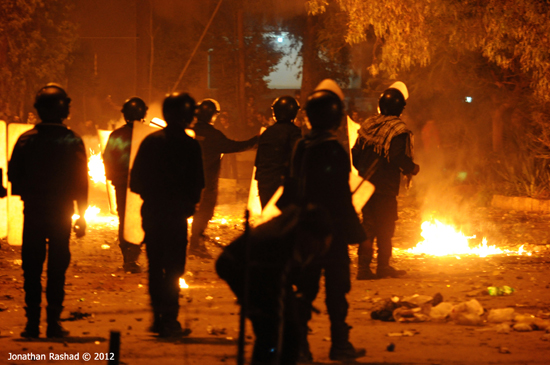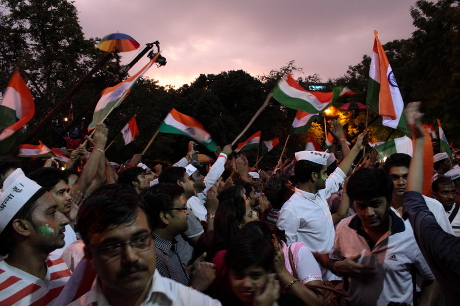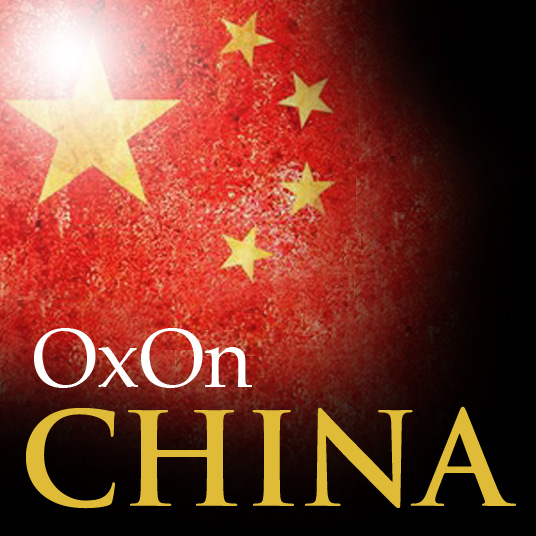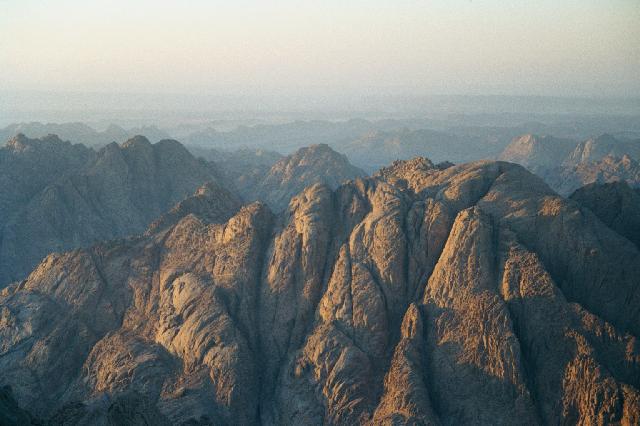
How to undermine democracy: lessons from Egypt?
Building democracy is a long-term project. It is also a frustrating one. Years of a painstaking process can lead to only a tiny step forwards. A moment of madness can set the process back decades.
Nowhere is this better illustrated than in Egypt, where the hope and optimism of the Arab Spring has already turned to despair and fear. New democracies and foreign powers that support them often ignore this point.
When opposition parties win power, they usually take little care to deliver on their promises. Donors such as the United States and France invest vast amounts of money in supporting elections but sometimes forget that this can be meaningless if they do not defend democratic principles along the way.

Is the Israeli-Palestinian conflict at the core of the recent regional problems?
The notion that a stable Middle East is dependent predominantly on a tiny country like Israel and on its conflict with the Palestinian Arabs being resolved was never particularly convincing. Now, as the so-called Arab Spring has entered its second year, it seems to be less persuasive than ever before.
One has to look at it in terms of cause and effect, inferring logically what would have happened had Israel and the Palestinian Authority reached a final agreement.
Let us assume, for the sake of argument, an agreement between Israel and the Palestinian Authority was reached prior to the emergence of the so-called Arab Spring.
Following such an accord, what would have happened in Syria? Would the cruel civil war now taking place in that country not have occurred? Would the Assad regime have behaved any differently towards those opposing his rule? Would they have conducted themselves any differently towards his regime? Would the Iran-backed-Hezbollah not have intervened directly in that civil war?

A Reformed Role Model: India is becoming a reluctant promoter of rights
When it comes to human rights, India is a paradoxical case. On the one hand she is praised as a regional standard-bearer, too-often celebrated as ‘the world’s largest democracy’ and applauded for protecting rights when her neighbours do not. On the other hand, the rights community is unanimous in its condemnation of India’s human rights record. Brutal oppression in Kashmir, state mandated ‘encounters’ (unlawful killings) and the violations of tribal land rights are but three of the recurring complaints made of India’s human rights protection record.
The picture is more complicated when it comes to international relations. For many, including Salil Shetty, the Secretary General of Amnesty International, India’s rising power status brings with it a greater responsibility to promote rights internationally. Meenakshi Ganguly, South Asia Director of Human Right Watch, said something similar in in a recent high-profile piece: urging India to do more to secure rights globally.
Of course India should do as much as it can to encourage rights protection beyond its borders. But such conclusions fail to explain why India is a reluctant partner in the international effort to protect rights. Perhaps the most instructive question is ‘is it in India’s interests to promote rights globally?’.

The new political regime in China: is it business as usual?
Dramatic changes do not appear to be on the agenda in China, at least at the surface level. The new political regime, under the stewardship of Xi Jinping, inherited an economy with widening socio-economic disparities and accompanying social welfare concerns. Farmers, migrant workers and lower/middle-class urbanities grumble about rising living costs, and a perceived lower quality of life. Their concerns are further cemented by greater public awareness of corruption in both the state and non-state sectors. This may be the cause of lower levels of trust and confidence in public and private institutions by the general public.
But in spite of the discontent, changes are happening. Administrative in nature, perhaps, these changes will have strong implications for state-society relations going forward.
What can we expect?

Secrets of Yemen’s eastern deserts
I recently travelled to Yemen’s remote and dangerous Mahra region to carry out the first ever survey of the local people’s hopes, fears and political aspirations in post-revolution Yemen. Here is a description of some of my experiences.
“Yallah, pack up. We leave in ten minutes.” For security reasons, our schedule was not revealed in advance, even to me.
Our convoy had settled for a few days in al-Ghayda, the ramshackle capital of Mahra governorate in east Yemen, and word of our presence was spreading fast. Invitations from local dignitaries had increased from a trickle to a flood. Traditional hospitality was the best way for opponents with vested interests to learn what we were up to.
It was time to move on. My tribal guards and hosts were eager for me to experience the beauty and hospitality of the deserts. Few outsiders, even Yemeni, have been given the chance to venture away from Mahra’s coastal regions into the uncharted interior.
Making a stop at a final gas station before heading north off-road into the undulating sands of the Empty Quarter, we loaded our convoy with as much water and petrol as we could carry.
Dotted around the station were well-armed men in trucks. Look-outs. My guards recognized them from the compound where a powerful tribe had invited us to share trays of lamb the previous day. Outside the compound, the rules of hospitality no longer applied. Yesterday’s hosts became today’s hostiles.

Egypt: The Middle East’s newest security threat?
Since the fall of President Mubarak, the Sinai has become an area of increasing lawlessness and instability. The region has turned into a base for drug smuggling, weapons smuggling, human trafficking, and a wide array of militant activity. The Sinai’s border with Israel and its proximity to the Suez Canal make it an area of vital strategic importance and its deterioration has the potential to threaten regional stability, the Egyptian-Israeli peace accords, and Cairo’s relations with the West.

Sino-Japanese War: A Q&A with Dr Rana Mitter, author of “China’s War with Japan, 1937-1945: The Struggle for Survival”
For the past few years, Professor Rana Mitter, one of the co-editors of our China blog, has been engaged in a research project aiming to better understand the process and relevance of the Sino-Japanese War between 1937 and 1945. Recently, he published his main findings in a volume that discusses the social, political and economic repercussions of the Japanese invasion and the Chinese response. We sat down with him to discuss it in more detail.
OxOn China (OC): What is the most important thing we need to know about the war with Japan?
Rana Mitter (RM): What distinguishes the Sino-Japanese war is that it really provides a breakpoint for Chinese modernity. A whole variety of longstanding traditions, patterns of landholding, and economic structures, changed forever. The fact that large swathes of Chinese territory were invaded and occupied was enormously disruptive. Local elites, for example, found themselves refugees, supplanted by an alien power. The political powerbase changed very suddenly, paving the way for the Communist revolution.

Economist Book review: China’s War with Japan, 1937–1945: The Struggle for Survival, by Oxford’s Rana Mitter
AS JAPANESE troops advanced on the Chinese capital of Nanjing in 1937, Zhou Fohai, a senior official in the Chinese government, wrote in his diary of the panic and fear consuming the city. He anticipated the destruction and its implications for his nation: “China will have no more history,” he wrote.
The devastation that the Japanese invasion would wreak was indeed shocking. But as Rana Mitter shows in his illuminating and meticulously researched new book about the Sino-Japanese war, not only did Chinese history not end with the fall of Nanjing, but in many ways the war helped to create modern China. It was the anvil on which the new nation was forged.
Other historians point to the arrival of British gunboats in the 1830s, when industrialising Europe collided with ancient China, as the dawn of China’s modern age. But Mr Mitter, a professor at Oxford University, believes that the country’s war with Japan was more important because it reduced China to its weakest state. “Suddenly the circumstances of war made the concept of the nation, and personal identification with it, more urgent and meaningful for many Chinese.”









